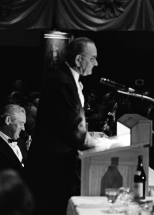Here’s a good one: Oprah Winfrey is a latter-day Walter Cronkite, a television personality “capable of massively shifting public sentiment.”
So writes a sports columnist for the Detroit Free Press.
It’s a ridiculous claim, but not for reasons that may immediately come to mind.
Walter Cronkite was the avuncular anchorman on the CBS Evening News from 1962-81. Oprah Winfrey is an iconic talk-show host, whose appeal may or may not be ebbing.
Her clout is formidable. Cronkite’s was overstated.
But to return to the columnist’s claim:
Drew Sharp, writing in the Free Press about Oprah’s upcoming interview with disgraced international cycling star Lance Armstrong, notes that it’ll be an occasion for “staged news.”
Armstrong, he observes, “made the smart move, agreeing to a 90-minute taped interview with Oprah, which will air on her OWN cable network Thursday. It no doubt will be well watched.”
Sharp also declares, in a passage of particular interest to Media Myth Alert, that Oprah “has become this generation’s Walter Cronkite, capable of massively shifting public sentiment.
“It was,” Sharp adds, “the late CBS anchorman’s pointed commentary 45 years [ago,] following the North Vietnamese’s Tet Offensive in which he argued in a rare editorial that the U.S. couldn’t win the Vietnam War. President Lyndon B. Johnson famously said afterward that if he lost Cronkite, he lost Middle America.
“Not long afterward, LBJ opted not to run for reelection in the 1968 presidential campaign.”
In his claims about the effects of Cronkite’s report about Vietnam, the columnist indulges in one of American journalism’s most prominent and tenacious media myths.
As I discuss in my mythbusting book, Getting It Wrong, there is no evidence that Johnson saw the Cronkite program when it aired on the night of February 27, 1968, or that he viewed it afterward on videotape.
So it’s hard to argue that Johnson could have been much moved by a television report he didn’t see.
The president wasn’t in front of a television set that night. He was in Austin, Texas, at a black-tie party (see photo, above) to mark the 51st birthday of Governor John Connally, a longtime political ally.
About the time Cronkite was offering his pessimistic, on-air assessment about the war in Vietnam — that the U.S. military was “mired in stalemate” — Johnson wasn’t bemoaning a loss of Cronkite’s support; he was saying:
“Today you are 51, John. That is the magic number that every man of politics prays for — a simple majority.”
Johnson did announce, a month later, that he was not running for reelection to the presidency. But his reasons had little, if anything, to do with Cronkite and the anchorman’s comments about Vietnam.
More significant to Johnson’s decision was his eroding political strength. By late March 1968, he was facing insurgent challenges within his own party from senators Eugene McCarthy and Robert F. Kennedy.
Not only that, but Johnson may have decided long before March 1968 not to seek reelection.
“Long before I settled on the proper forum to make my announcement,” Johnson wrote in his memoir, The Vantage Point, “I had told a number of people of my intention not to run again.”
The memoir, by the way, has nothing to say about the Cronkite program of February 1968.
What’s more, there’s no evidence that Cronkite’s “mired in stalemate” comment influenced public opinion “massively” or otherwise.
Indeed, as I point out in Getting It Wrong, polls signaled shifts in public opinion against Vietnam months before Cronkite’s program. The anchorman followed rather than led deepening popular doubts about the wisdom of the war.
And until late in his life, Cronkite pooh-poohed the notion that his assessment of the war had much effect, saying it was akin to “another straw on the back of a crippled camel.”
To liken Oprah to Cronkite is, of course, more than a little incongruous. But it has been done before.
In a commentary published at Huffington Post in 2007 and titled “Oprah is to Iraq what Cronkite was to Vietnam,” Marty Kaplan asserted that “Oprah may actually be the twenty-first century’s de facto national anchor.”
A more frequent if similarly imprecise comparison is to identify Jon Stewart as a latter-day Cronkite.
But both comparisons are strained and feeble: They seek to reapportion to contemporary contexts influence the legendary Cronkite never really possessed. As such, they succeed only in promoting a media-driven myth.
More from Media Myth Alert:
- Proxies for reality: Fact-based films and their mythmaking potential
- On Cronkite, Jon Stewart, and ‘the most trusted man’
- Chris Matthews invokes the ‘if I’ve lost Cronkite’ myth in NYT review
- Lesson unlearned: Indulging in the ‘Cronkite Moment’ myth
- Wasn’t so special: Revisiting the ‘Cronkite Moment,’ 44 years on
- ‘Lyndon Johnson went berserk’? Not because of Cronkite
- ‘Mired in stalemate’? How unoriginal of Cronkite
- Mangling the ‘Cronkite Moment’
- Why not the ‘McGee Moment’?
- Journalists changing history: A double dose of media myth
- Taking stock: Top mythbusting posts of 2012
- At HuffPo books
- ‘Getting It Wrong’ receives major shout-out in ‘New Yorker’


[…] Oprah as ‘this generation’s Walter Cronkite’? […]
[…] Oprah as ‘this generation’s Walter Cronkite’? […]
[…] Oprah as ‘this generation’s Walter Cronkite’? (mediamythalert.wordpress.com) […]
[…] Oprah as ‘this generation’s Walter Cronkite’? […]
[…] Oprah as ‘this generation’s Walter Cronkite’? […]
[…] Oprah as ‘this generation’s Walter Cronkite’? […]
[…] declares, of “one of the most famed moments in broadcasting, when CBS News legend Walter Cronkite delivered an editorial opinion after the Tet Offensive in February 1968,” in which he […]
[…] Oprah as ‘this generation’s Walter Cronkite’? […]
[…] Oprah as ‘this generation’s Walter Cronkite’? […]
[…] Oprah as ‘this generation’s Walter Cronkite’? […]
[…] Oprah as ‘this generation’s Walter Cronkite’? […]
[…] Oprah as ‘this generation’s Walter Cronkite’? […]